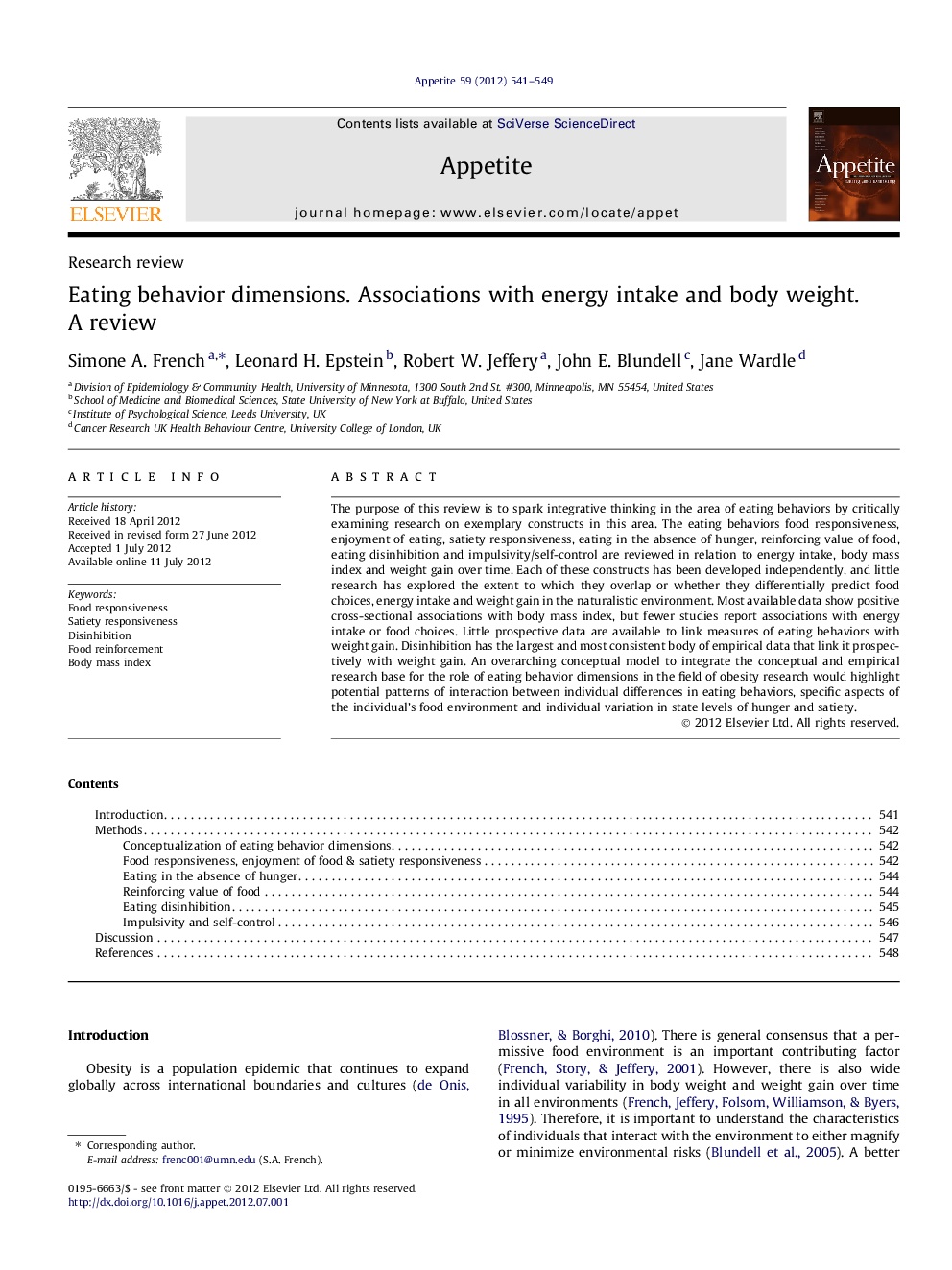| Article ID | Journal | Published Year | Pages | File Type |
|---|---|---|---|---|
| 939933 | Appetite | 2012 | 9 Pages |
The purpose of this review is to spark integrative thinking in the area of eating behaviors by critically examining research on exemplary constructs in this area. The eating behaviors food responsiveness, enjoyment of eating, satiety responsiveness, eating in the absence of hunger, reinforcing value of food, eating disinhibition and impulsivity/self-control are reviewed in relation to energy intake, body mass index and weight gain over time. Each of these constructs has been developed independently, and little research has explored the extent to which they overlap or whether they differentially predict food choices, energy intake and weight gain in the naturalistic environment. Most available data show positive cross-sectional associations with body mass index, but fewer studies report associations with energy intake or food choices. Little prospective data are available to link measures of eating behaviors with weight gain. Disinhibition has the largest and most consistent body of empirical data that link it prospectively with weight gain. An overarching conceptual model to integrate the conceptual and empirical research base for the role of eating behavior dimensions in the field of obesity research would highlight potential patterns of interaction between individual differences in eating behaviors, specific aspects of the individual’s food environment and individual variation in state levels of hunger and satiety.
• Purpose of review is to spark integrative thinking in the area of eating behaviors. • Eating behavior constructs are reviewed related to energy intake, body mass index and weight gain. • Positive associations with body mass index; fewer reported with energy intake or food choices. • Integrative conceptual model needed to highlight environment-individual interaction.
